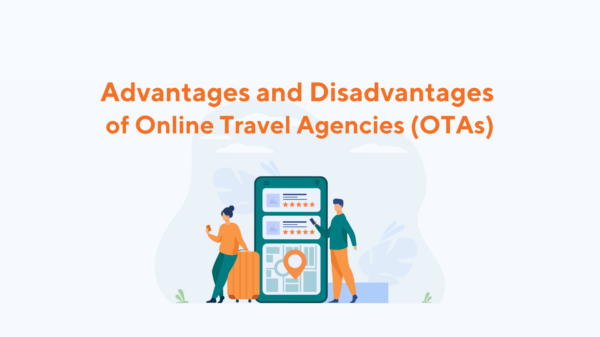
If you are a Zerve provider, you were probably as shocked as anyone to receive an email from the company on June 30th stating that the service was going to be shutting down in a matter of days. Once the reality hit, many providers were online looking for alternative systems desperate to try and find some way to get their booking engines working in time for the busy summer rush. As quickly as the news spread with providers, the news spread just as quickly within the booking engine community as well.
What I realized the next morning is just how sad and utterly devastating this situation must have seemed to so many small businesses, and how opportunistic and predatory the booking engine community had become, seemingly overnight. Like a frenzy of sharks, many companies have targeted Zerve providers as potential easy prey. For some providers, this has been a welcome relief, to have another company come along and do the work of migrating their tour information and calendars and get them up and running again. The long term downside though, is that these same providers have done nothing to prevent this from happening to them again. By not taking the time to do their due diligence and take some relatively minor but critical steps in their business processes, these providers have continued to leave themselves vulnerable.
I wrote an article for Tnooz that outlines my thoughts on best practices for tour operators and what businesses should take away from the aftermath of the Zerve shutdown. Here are some of the highlights from that article.
One of the things that Zerve offered and was very popular with operators, was a call center for customer service and reservations. Let’s think about this for a second, these providers handed over control of their phone and customer service to a third party. No matter how attractive that seems, outsourcing your sales is not a good idea. Not least of which because, like this situation, when that channel disappears, you have no back-up whatsoever. The solution to this problem is to take control of your sales and make sure your website has accurate information, complete tour details, a secure booking engine, and phone number to call in case of questions. Most customers are booking your tours outside of office hours anyway and they are doing it online. The only reason they would be calling is because there is missing information or they have a question that cannot be answered online. Your goal should be to reduce the number of calls you get and therefore, there is no reason you shouldn’t be able to handle answering your own calls.
Many Zerve providers also seemed to be comfortable with the concept of having a third party company (other than a payment gateway or a bank) handle their money. Not a good idea. This is an okay scenario when you are working with a company like Viator or Expedia who is marketing, selling, and providing customer service to travellers, but this should never be the case for direct sales. Not to mention, only getting your money once a tour has happened. There have been many examples of companies who have gone out of business without paying out their providers. Hopefully Zerve won’t be one of them, but do you really want to take that risk AGAIN? Your direct channel is probably close to 80-85% of your revenues, are you really going to hand that over to someone else to manage for you? The solution is take control of your finances by getting a proper merchant account, or at the very least use a service like Stripe to manage your online payments. Companies like Zerve and others out there that provide bundled credit card payments, thrive in an atmosphere of fear, laziness, and ignorance. Getting a merchant account and payment gateway is not hard or difficult, it just takes a bit of preparation and planning. Once you have your own payment gateway and merchant account, you can decide what booking engine you want to use without being forced to use one simply because you are not prepared.
Which is more important, the Zerve brand or YOUR brand. Selling on Zerve meant passing off the entire online booking experience to the Zerve website, which face it, didn’t look anything like your website. When a customer booked your experiences, they were clearly booking with Zerve. They received emails from Zerve, their credit card statement said Zerve, and they wrote their review on Zerve. It’s a bit like buying a TV at Wal-Mart. At the end of the day, you were the TV and Zerve was Wal-Mart. Whose tour was it again? Who owns the customer? Who is the customer really going to remember? The solution to this is simple, take control of your brand! This means keeping the customer engaged with your brand, using a booking engine that matches your website, and sending your own emails to customers. The customer should always feel like they are booking directly with you.
Regardless of whether or not you choose to use Rezgo, as a small business owner, there are certain things that you need to keep under your control. Don’t make the same mistake again and leave yourself vulnerable. Your brand, sales, and money are at the very core of your business. Choose a booking engine that supports your business without taking control of it away from you. Good luck to all the providers affected by this closure. We’re here to help if you need us.
Search The Blog
Most Popular Articles
- 16 Innovative Tourism Business Ideas and Trends for 2025
- Your Marketing Mix: the 7 Ps of Travel and Tourism Marketing
- How to Create and Promote Amazing Tour Packages
- Smart Strategies: How AI in Tourism Can Transform Marketing and Customer Service
- How to Create a Business Plan for Your Tour or Travel Company





